In her poem, Leaves and Blossoms Along the Way, Mary Oliver writes God, or the gods, are invisible, quite understandable. But holiness is visible, entirely. I was struck by the image of an entirely visible holiness that is active amidst an invisible God. The idea that holiness abounds and surrounds us is often difficult to embrace when it seems that so much is going backwards in the world today. It feels like God is indeed invisible and holiness is often hidden beneath the crush of remarkably difficult issues such as an epidemic of mass shootings; of the mounting impact from climate change, of unbridled greed; of an ever growing economic divide; of caustic political discourse that threatens our very democracy. Recently, I have felt paralyzed by the weight of these complex issues, each of which seem to have no ready resolve but all of which are integral to living a life of simplicity, peace, and grace. I was fearful when my youngest daughter and her husband were making plans to attend the State Fair, just days after the back to back mass shootings in Texas and Ohio. I was afraid that there would be a copy-cat shooting here in Wisconsin and that the State Fair would be a rich target for a sick shooter. And I knew, there was no way I could protect them if they went. I also knew that praying to God to protect my loved ones was an empty gesture. I don’t believe the Divine works that way. I believe that God loves each of us and whispers in our hearts a call to bring forth his love in the world each day. But some – and sometimes many – are not practiced at listening for that still small voice, let alone acting on it. The shooters in Texas and Ohio most certainly have (or had) that of God within them. The Divine was actively calling out to them, beckoning them to feel his love and to mirror that love in the world, and no amount of my prayers would change that. It is easy to see an abundance of holiness in the world when we look at the wonders of the environment. My wife Jennie planted three butterfly bushes in our back yard years ago, and now we are graced with dozens of butterflies who come yearly to feed on the blossom’s nectar before undertaking their 1,000 mile flight to Mexico. The marvel of these butterflies and how they pass on our yard location in their DNA so their offspring will know where to find sustenance year after year, is a grace almost beyond comprehension. The holiness of the natural world surrounds us if we are willing to slow down and contemplate its beauty. However, one must strain to see the holiness in the individuals who refuse - out of greed or a need for political power - to act on the many issues confronting our world. But here too, our holiness must abound. I’m not talking about a kumbaya type of holiness that ignores the darkness in the world and keeps hoping for Divine intervention to spread peace over the earth. I’m talking about that fierce mama bear love that will see immigrant children abused by our government and will make our elected officials take notice. I’m talking about a kindness that will hear someone speak from their position of privilege and will gently, and lovingly remind them that their station in life was built on the backs of others who did not benefit from such an advantage. Certainly there is a darkness in the world. But just as certainly, there is a holiness that we can call upon from within ourselves and from others of like mind. I am reminded of the quote by the Quaker George Fox in which he states “I saw, also, that there was an ocean of darkness and death; but an infinite ocean of light and love, which flowed over the ocean of darkness.” I believe that we are called to be the light and love, the holiness that flows over the darkness of our days. It is only through each of us that holiness will abound in these times. There is a quote of uncertain origin that sums up our call quite well. Do not be daunted by the enormity of the world's grief. Do justly, now. Love mercy, now. Walk humbly now. You are not obligated to complete the work, but neither are you free to abandon it.
0 Comments
At one Sunday meeting, several Quaker Friends commented on a rally they attended in support of the Muslim community after the New Zealand shootings. All who spoke, remarked on an Evangelical pastor who addressed the rally and asked for forgiveness; stating that the religious right bears some responsibility for the divisive tone in our country. What was so moving about this moment, was that each of the Quakers confessed to how they struggled with the idea of forgiving this person.
Forgiveness is easier accomplished in concept than in the messy reality of life and relationships. That’s why the testimony of these Quakers was so profound to me. By verbalizing their struggle in forgiving this pastor, my Quaker Friends shared their own vulnerability with the rest of us. In one gospel passage, Peter asks Jesus if forgiving someone seven times is enough. Clearly, Peter was done with forgiving and wanted to move on. By responding that we must forgive not seven times, but seventy times seven times, Jesus was instructing us that forgiveness is a journey we must take within ourselves and with those whom we are struggling to forgive. The essence of the forgiveness journey is to arrive at the place where we are able to forgive from our hearts. How do we reach that place where we can let go of the pain, the anger, the mistrust, the guilt, the resentment, and all those confusing feelings that get wrapped up with a sense of being harmed? I believe that my Quaker friends begin to show us the path towards forgiveness. The first step – the one they shared with us – is to acknowledge that we all are imperfect people. We know we should forgive, but we just aren’t ready. It is a mistake, I believe, to deny our feelings of anger and resentment. We must acknowledge them. We must own them. But then we must let them go. I know that letting go is easier said than done. I’ve written about this previously, but want to touch on it again here. Whenever I find myself in turmoil over something that someone has said or done toward me (imagined or real), I hopefully get to a place where I begin to see that there are a lot of “I” statements driving my emotions. I was hurt, I was misunderstood, I was maligned. When I awaken to the many “I” statements driving me, I realize that I am at a place where my ego is outrunning my soul and it is time to slow down. It is time to quiet myself and listen for the whisper of that still, small voice guiding each of us. I’m sure my Quaker friends worked hard to still their hearts and minds and to listen to the voice of the inward guide when they realized they were being asked to forgive someone when they weren’t yet fully prepared to do so. When I reach that point where I know what I’m supposed to do, but can’t quite find it in my heart to act, it is then that I realize that this is beyond my capability. It is then that I give over all these conflicting and confusing thoughts and desires and place them at the foot of God. One of my spiritual heroes is the Trappist Monk, Thomas Merton. Among the many books he wrote is the Sign of Jonas in which he penned what I have found to be one of the most profound statements on mercy that I have read. Merton wrote: God says “What was vile has become precious. What is now precious was never vile. I have always known the vile as precious: for what is vile I know not at all. What was cruel has become merciful. What is now merciful was never cruel. I have always overshadowed Jonas with my mercy, and cruelty I know not at all. Have you had sight of Me, Jonas, My child? Mercy within mercy within mercy." That image of the Divine as endless mercy has haunted and inspired me from the first day that I read it. It haunts me because the aspiration of showing mercy within mercy within mercy, is one that I fail at time and again. I have come to understand that I must accept God’s mercy for me before I can extend mercy and forgiveness to others. That, I believe, may be the most difficult part of the journey towards forgiveness.
Han, is a Korean word that has no ready translation in English. The best description I’ve seen comes from the TV series The West Wing, where U.S. President Bartlet (played by Martin Sheen) explains that Han is " a state of mind. Of soul, really. A sadness. A sadness so deep no tears will come. And yet still there's hope."
Han describes a soul that somehow finds a way to live with the paradox of sadness and hope. It is perversely comforting to know there is a word for how I’ve been feeling: a deep sadness about our planet that is under duress and about our children – a whole generation now - growing up with the sense that they could be killed at school at any moment by an unstable person with a gun. A recent and compelling petition from a young girl pleading for action on climate change expresses the concept of Han far better than anything I can say. Greta, a 16 year old environmental activists from Switzerland, told the World Economic Summit that " I don't want you to feel hope. I want you to feel the fear that I feel. I want you to act as if the house is on fire, because it is.” If you do nothing else today, please watch this compelling one minute video of Greta imploring us all to action. The evidence on Climate Change is undeniable, and yet we allow the deniers to dominate the agenda. If there is any doubt about how serious this has become, just start clicking on some of the topics in this NASA website to gain a better understanding of the plight all humanity faces: global temperature increasing, warming oceans, sea level rising, extreme environmental events, or ocean acidification. Plenty here for a brooding sense of sadness. Thank God for the Gretas of the world to offer a smidgeon of hope for change in the face of impending global disaster. We have the same dynamic on gun control. In just a few weeks it will be Valentine’s day. This year, Valentine’s day takes on a more ominous tone, as it will mark the one year anniversary of the Parkland Florida mass shooting at the Stoneman Douglas High School where 14 students and 3 adults were killed. Since 1982, using the most conservative definition, there have been 108 mass shootings in the United States. We should all be unsettled by the fact that the frequency of mass shootings has tripled in recent years, but we seem to have become numb to them. Point in fact, there was an execution style slaying of five women recently in a Florida bank, but it barely made the national news. I don’t know if we’re numb, or tired, or just getting too old to muster a serious fight on these issues. Or perhaps there are too many issues these days and we feel like there is only so much one can take on. All of this brings me back to Greta and the concept of Han. Greta pleaded that she doesn’t want us to feel hope. But, if Greta didn’t have hope, she would not have traveled 32 hours by train to appeal for action and sanity on climate change. I'm convinced it was her hope for change that brought her to the World Economic Summit. Greta – at 16 years old – seems to have learned how to live with the paradox of sadness and hope. I hope we can learn from her example. I hope that we can continue the fight on these and other critical issues of our time. I hope.
The Winter Solstice will begin on Friday December 21st at 4:22 PM Central time. This will be the longest night of the year. Throughout the world and through ancient and modern times, this has been a cause for reflection and celebration. It has been a time of joyful anticipation and a celebration of light amidst a prevailing darkness. I would like to share with you a real-life example of the celebration of light against darkness.
As I drive on Burleigh Street to attend Sunday Quaker Meeting, I have passed this particular house numerous times. It would be more accurate to say that I have ignored this house, because my eyes have always been focused elsewhere. But on the Sunday after Thanksgiving, the homeowner placed large, red Christmas bows on the chain-link fence surrounding the property; one bow on each fence post in the front yard. The bright red bows drew my attention to the house from a block away. This is a typical Milwaukee bungalow, nicely maintained with a four-foot chain-link fence in front and a bird bath in the yard. There are two reasons why I haven’t noticed this house before. The first is that this stretch of Burleigh Street is poorly maintained and I keep my eyes on the road in order to avoid the washboard like dips and bumps on the street. The other reason I’ve ignored this home is because directly across the street from it are three hulking, vacant, burnt-out duplexes that stretch from the middle of the block to the corner. One of these three houses has fire damage and I can see the sky through the rafters of the roof. So, as I drive this section of Burleigh Street my eyes are on the road in order to protect my car from damage and then they are on these massive eyesores. These derelict duplexes sit on this block like a black hole in space, sucking up all the light and energy around. I think about the homeowner with the bows on the fence. As they walk out their front door, the dilapidated duplexes are right in front of them. I imagine that these duplexes are what the homeowners see as they sit in their living room and look out their window. To me, the bungalow homeowner with the red bows in the front yard is making a choice. She or he or they are choosing to celebrate the light and refuse to let the darkness on their street prevail. They are saying that at this time, on this block, these people are determined to not only seek the light when confronted with darkness, but they have chosen to be the light on their little corner of the world. God bless them. Lord knows there is plenty of darkness in the world. Just since Thanksgiving we have seen:
At this time of year when we have more dark than light and at this time in history when darkness seems to be prevailing in the world, what is our calling? For me, I want to be like that homeowner who lives on a deteriorating section of Burleigh Street across from three burned out wrecks. I want to be proud of fixing up my part of the world and I want to put out red ribbons to declare to all that light and goodness will prevail. And so, here is my prayer: Lord,
When a pendulum reaches its maximum arc, the velocity is zero. Everything stops. With the recent election, it feels like the pendulum stopped swinging and soon perhaps, it will begin its journey back to the center. Beginning in January 2019, we will have returned to a system of shared governance; one with appropriate checks and balances, as envisioned by the framers of the Republic.
The American system of government was designed to mitigate two competing visions of authority. On one side were those who feared the tyranny of the majority, believing that a pure democracy would lead to chaos. Those on the other side feared the tyranny of the minority; that a person or a party could impose their will on the unwilling. And so, our founders devised a government designed to limit the ability of any party or person to create too much power. America is a divided country at the moment: Urban vs. rural, educated vs. less educated, white vs. people of color, Democrat vs. Republican, wealthy vs. the poor and the dwindling middle class. With a country so divided and at so many levels, perhaps what we need the most right now is a divided government; but one that uses the division of power to seek compromise and addresses the root causes of our disunion. Joseph Stiglitz, a Nobel prize winning economist, writes “There is a widespread sense of powerlessness, both in our economic and political life. We seem no longer to control our own destinies….For a third of a century, the American economy has failed to enhance the well-being of a majority of its citizens” Stiglitz was discussing how large corporate monopolies have exacerbated the social and economic problems facing America and have worked to pervert the political process. Corporate and political monopolies have brought us to a place where our political and economic systems no longer work to improve the life of the average citizen. We are a country that is racially, economically and geographically divided while at the same time our two political parties fight for sole control of all levers of government in order to impose their own priorities on everyone. It is no wonder that our country feels on the verge of imploding. The rich are getting opulently more wealthy as the already powerful strive to amass more power, and the average citizen is feeling socially and economically squeezed and evermore powerless. At a time where we sorely need a divided government to inhibit the tyranny of the minority, we also need an engaged populous in order to hold our politicians and captains of industry accountable. We need to get back to a government and an economy that works for all of us and not just the connected or privileged few. This isn’t really so farfetched. It feels like we are on the verge of this very movement now. We have both aspects already underway: a divided government and an engaged populous. Expecting a divided government to solve our problems is not all that outlandish because there is broad consensus on a variety of “divisive” issues. According to a series of Gallup polls, the majority of people support gun control. We support an improved environment, and healthcare for everyone. A large majority believe immigration is good for America and that repairing our infrastructure is key to our ongoing economic wellbeing. Significantly, the majority of Americans also want government to work better by ending the partisanship and finding a way to compromise and solve our most pressing problems. The American people have a unified vision on a wide variety of significant issues. It is our political parties and corporate elite that ignore the will of the people and who seem hell bent on amassing power, often at the expense of social and economic progress for the country as a whole. Our country is divided – as Stiglitz points out – because the political and economic infrastructure has failed us. The push for more money and more power – at all costs – has driven divisions through the heart of America. But now the pendulum has stopped. We can take a breath and get ready for the pendulum to swing back as it picks up speed. Our job is to ensure that the momentum works to our advantage. Our job is to ensure that every politician and corporate elite understands that for American to thrive, we need to focus on the common good. The politics of power for power’s sake are done. The time of amassing wealth at the expense of the many are over. A divided government is a government designed to ensure that the considerations of the many take precedent over the whims of the few. But, this will only work if we stay committed and engaged. The pendulum has stopped for now. But we cannot.
I feel compelled to make one observation. The president wants us to be afraid of the immigrants and asylum seekers hoping to cross our border, when the real terrorists are home grown middle aged – and for the most part – white males.
We hear the threats almost daily about the immigrant caravan that is yet 900 miles away, stating - with no evidence - that it serves as a cover for gangs and terrorists wanting access to our country. Yet, the real terrorist are already here. Cesar Sayoc – the pipe bomb terrorist suspect who tried to assassinate 14 high profile critics of the president is a mid-fifties male, born and raised in America. Robert Bowers, the gunman who killed 11 worshipers at the Pittsburgh Jewish Synagogue is a white male, born and raised in America. Gregory Bush, the suspect who shot down two people at a Kroger grocery store in Kentucky is a white male, born and raised in America. In fact, more Americans are killed by right-wing, American born extremists than by any other group. Terrorism is born out of hatred and hatred is born out of fear. If we want to stop the home-grown terrorists, we have to stop stoking fear and begin dealing with the real - social and economic issues driving that fear.
I receive daily, a half-dozen email meditations to help spur my spiritual growth. One of them recently posed a question that made me reflect more deeply on my life. A paraphrase of the question is this: Is it possible to live on this planet with a spirit of generosity, abundance, fearlessness and beauty? (Inward/Outward Daily Meditation quoting Cynthia Bourgeault, from The Wisdom Jesus)
I will be the first to admit that there are no days when I live up to all four of these attributes. There may be a day – here and there – when I can claim to model one or two of them. As I see it, the world doesn’t only exhibit these positive traits. All too often we are confronted with a world that is mean spirited, greedy, power hungry, cowardly and bleak. I don’t think we can innocently stick our heads in the sand and pretend that the negative aspects of the world don’t affect us. They do, and in many ways it is inescapable. There are days when I consciously stay away from social media, where I won’t read the newspapers or watch news shows. These are days when my entire being feels wounded by the constant battering of negative news; when my soul feels like an exposed nerve, wincing at every assault on its tender sensibilities. I’m pretty sure that the world won’t become a paradise in our lifetime: a place devoid of conflict, where peace and splendor abound. And if that is so, then how do we go about our day fearlessly displaying a generosity of spirit and celebrating an abundance of beauty? How do we experience joy when there is so much negativity, sorrow and pain? I believe we must learn to live with the paradox of life. We must accept the fact that the world is generous and stingy; that we can have both scarcity and abundance; that sometimes we will be brave and other times we will act cowardly and that often the beauty of the world becomes scarred, battered and destroyed. In short, we must learn to accept life as it is, in all its gore and glory. I don’t mean this in a fatalistic sense. By no means do I support the belief that what happens to us is part of a cosmic plan and that we must simply accept our fate. What I do believe is that the Devine intervenes in the world in very much the same way that a community organizer intervenes in a neighborhood or on an issue. The organizer and the people are co-creators of making the world a better place. A good organizer has a solid grasp of the environment in which s/he is working and can articulate a vision for a better day. As such, a good organizer can inspire people to a higher calling. Also, a good organizer understands that lasting change only happens when people own the work; when they participate in the strategy and the toil; when they have their legs knocked out from under them and can get back up and continue to organize and to try again. Lasting change comes through collective struggle and a sense of community empowerment. The organizer is the spark. The people are the engine of change. That is how I believe God approaches the world. The Spirit breathes within each of us; calling us to something greater; coaxing us to step out fearlessly into the world and to bring forth the kingdom of God by the work of our own hands. And that brings me back to living life with a spirit of generosity, abundance, fearlessness and beauty. We can be fearless because we know we are agents of God on earth. We acknowledge the greed that causes scarcity, but we model generosity and organize people to bring about a world of abundance for all, as it is meant to be. We help people to see the pain and suffering of the world, but we embody the love and beauty that is possible, even in the most dire of times. God calls us and we, in turn, are expected to call upon the world to work together; to be the voice and body of God in the midst of all that is wrong around us. We are called to stand as an open door, a threshold – helping others to gain a glimpse of the beauty, love and generosity that is possible. In the words of Hafiz, the Sufi Master: We have not come here to take prisoners, But to surrender ever more deeply To freedom and joy. We have not come into this exquisite world To hold ourselves hostage from love… Or to confine our wonderous spirits, But to experience ever and ever more deeply Our divine courage, freedom, and Light!
How does one enlist in the struggle for the soul of America? And, how do we do so without further dividing the country? As a nation, it feels like we are either screaming at each other or we are holding our breath, hoping that the country doesn’t implode under our own discord. The divisions we feel in America today are real. I was born and raised on southwestern Pennsylvania and talk regularly via social media with friends back there. Many are President Trump supporters. They see their wages declining, their children and friends becoming addicted to drugs, their towns dying and they are looking for someone – anyone - who can turn things around. Politically, culturally, spiritually, and by almost any other measures, it seems that our country is under duress. We recently heard our president offer that if Republicans don’t retain control of Congress in the November mid-term elections, there will be a violent overthrow of conservative policies. This is just another reminder about the intensity of the struggle for control of our country as each faction works to gain or retain power in order to enact policies reflecting their own vision of America. Who we are as a people and what values we espouse through our public policies is the battle ground of our time. But, how do we do so in a way that promotes community and not division? We seem to think this is hard because we forget that we used to do this all the time. The American model of an orderly transition of power began after the bitterly fought election of 1800. The Federalists and Republicans were at odds, each believing that the other – if they should win – would be the downfall of this nascent country. To gain a sense of how deeply divided was the country at that time, consider this quote from Thomas Jefferson as he looked back at the traumatic events of that era: “public discussions…whether relating to men, measures, or opinions, were conducted by the parties with animosity, a bitterness, and an indecency, which had never been exceeded. All the resources of reason, and of wrath, were exhausted by each party in support of its own, and to prostrate the adversary opinions.” When describing the sense of animosity in Philadelphia (the nation’s capital at that time) Jefferson wrote “Men who have been intimate all their lives cross the streets to avoid meeting and turn their heads another way, lest they should be obliged to touch their hats.” Political activists of that time truly believed that the election of 1800 was a fight for the survival of the country. There were sex scandals (yes, even back then), financial crisis, military defeats, a Yellow Fever epidemic, all of which became fodder used for political gain. It wasn’t just the election of 1800 that we saw a deeply divide nation, America has been a country divided throughout much of its history. We were begat in a revolution and after the revolution fought each other – often violently – over land expansion and slavery. Racial tension is woven into the fabric of who we are as witnessed by the nearly 4,000 people lynched in America, most of whom were black. We continue to be a country divided over civil rights, guy rights, war, the environment, abortion, school choice, guns and many other issues. Even with all this strife over much of our history, we have found a way to pull together as a country, to unite around the ideal of America, democracy and freedom. So, how do we do this? How do we engage in the social and political debate without ceding ground to those policies we oppose and do so from a place of community? Here are my suggestions. First – find that goodness within. If we don’t believe that the essence of who we are is rooted in goodness, then how can we see the same for others? Find and trust the goodness in your own heart. Second – find and trust the goodness in those you encounter. That doesn’t mean you acquiesce to them, it simply means that try to look at the issues with their eyes, from their point of view. And do so with an open heart and an open mind. Third – Hold fast to the truth. Speak the truth and hold others accountable for speaking the truth. The goal here is to consistently lift up the truth like a light in a dark cave, but to do so in a way that isn’t strident or demeaning. Here is the ultimate test: can you disagree with a disagreeable person without becoming disagreeable yourself? The key, is to focus on you and not on them. Control what you say, or how you act and what you do. Fourth – focus on building community. Commit to a win-win strategy and stick to it. Before you speak, or take action or take a position, ask yourself: how can I do this in a way that builds community? I wrote previously about a triple love decision making process. Now would be a good time to refresh your memory on it. We Americans are at our best when we recognize our own frailties within others and when we keep our focus on what is best for our community and for our country. Perhaps we don’t really need to fight for the heart of America, we just have to find it within ourselves and own it. We have to find it within our neighbors and cherish it. We have to find it in those who we choose to represent us and who will lift up the spirit of a nation united. Meghan McCain said it well during the eulogy of her father, Senator John McCain. “The America of John McCain is generous and welcoming and bold. She is resourceful and confident and secure. She meets her responsibilities. She speaks quietly because she is strong. America does not boast because she has no need to. The America of John McCain has no need to be made great again because America was always great.” I’m not so sure America has always been great. But I do know that Americans have found a way to get through divisive times before by focusing on what we each can contribute. As Gandhi wrote – “As a man changes his own nature, so does the attitude of the world change towards him. . . . We need not wait to see what others do.” Or, as the Gandhi quote is oft paraphrased, “Be the change you want to see in the world.”
Where is the pain in the world right now? Or perhaps a better question is: where is God in the midst of all the pain we see in the world.
Identifying the points of pain isn’t difficult. In fact, the suffering in the world is all too apparent and found in too many places.
I could certainly go on. I haven’t mentioned the effects of gun violence, poverty, racism, sexism, hunger, homelessness, sex trafficking, poor education, economic dislocation, income inequality, greed and too much more. But this post isn’t intended to be a litany of woes in the world. What I really want to explore is the question of where is God in light of all the suffering. It is not uncommon to hear people proclaim that God must have a plan and as such the suffering we see must be a part of that plan. Can that really be true? I was raised in a very loving family and at no time did my parents deliberately cause me suffering in order to teach me a lesson. My father and mother – who were fallible – could never bring themselves to use suffering as a teaching tool. If my fallible parents were incapable of such actions, I have to believe that the idea is alien to the Divine, as well. In short, I don’t believe that pain and suffering is part of God’s plan. So, if it is not part of God’s plan, is it the result of an active agent of evil in the world? Is the devil preying on people in order to drive us from the arms of God? As I’ve written before, I don’t believe in the devil. Evil, I believe, is the result of people closing off their hearts to God and following the dictates of their own ego. And so the question remains: where is God in all of this? I believe he is tapping us on the shoulder. A good friend and Baptist preacher once told me that he believes God has finished his work in the world. I looked at him kind of puzzled – because after all – this was a prominent Baptist preacher telling me that God was done with us. He explained that God isn’t done with us – but he is done with intervening directly in the world. I agree. As a Quaker, I believe there is “that of God” in each of us; that my unique and eternal soul is linked directly to the Divine. I strive to carve out time each day to sit in stillness; to be in communion with the part of the Divine that is within me. I don’t pretend that God talks to me. Hearing God talk to me isn’t what sitting in stillness is all about. I have come to believe that the time I sit in stillness is the time I am preparing myself to hear the voice of God. It is rare that I feel I have heard God from out of the stillness. More typically, as I go about my day, I will hear a thought. It will often be just a quiet idea that pops into my head. But it will be one that comes with a sense of certainty; a sense that it is a leading from the Divine. And then I know I must act on that leading. God tapped me on the shoulder and nudged me to act on his behalf. There is a video circulating on social media by a business coach named Bill Hart. In the 2.5 minute video, Hart describes an encounter he had with a woman in a restaurant as a result of his sense that he was called by God. I encourage you to watch it. In this video, Hart aptly describes how a leading from God appears and what joy is derived from acting on it. And so, back to the original question: where is God in all of the pain and suffering in the world? He is calling us to listen and to act. He is urging us to seek out the pain in the same way that a sunflower seeks out the sun and to minister to those in need. He calls us to listen for his voice – as it is there as surely is the sun at noon – and to act on it. It is far too easy to curse God for allowing suffering to persist. It is a bit harder to recognize that it is we who are continuing the suffering by ignoring the call of God. After all, there are no acts of God without acts of people.
I don’t pretend to know much about Quantum Physics, but I’m fascinated by the idea that studying the smallest parts of our universe might tell us something about space, consciousness, God and ourselves.
Consider what I’m about to say very carefully. When we get down to the Quantum level – in the area of atoms and protons and such – we find that they behave as if they were conscious. They can detect when they are being observed and alter how they act as a result of the observation. This phenomena is often explained by the “double slit experiment” ; one of the most famous exercises in Quantum Physics. There used to be a big debate in the scientific community about whether light is a wave or is it made up of particles (matter). Now, we learn that it can be both. And, whether it exhibits as a wave or a particle depends on if it is observed and measured. Even more astounding is the idea that this dual property of wave and particle is also found in matter, meaning that all matter can also be measured as a wave. Equally puzzling but just as real is the fact that sub-atomic particles can instantaneously communicate with each other from great distances away and alter how they act. If one particle is spinning left, then the partner particle will spin right. If these paired particles are separated – by millions of miles – they will continue to spin in consort, even if they have to change to do so. For example, if particle A changes and begins spinning from right to left, then particle B - which can be hundreds or millions of miles away - will instantaneously begin spinning from left to right in order to stay in sync. A recent book on Quantum Physics by Philip Ball explains how the universe is really a series of probabilities. In the book, Ball talks about how the world is made up of “ifs” and there are more ifs than there are answers Here’s an example. Scientists can calculate the probability of where a particle may land, but they don’t really know because – until it is measured – the particle is a wave of energy. And it is only in the measurement, that the wave of energy become a mass – a particle. Think about that for a moment. Everything is a wave of energy until it is viewed and only then - as a result of the observation - does the mass appear. What I take away from Quantum Physics is this: We humans sometimes think we have it all figured out, but we don’t. Are atoms conscious? Can they talk to each other through space and alter time? How can matter be a ray of energy that only becomes a mass when observed? After taking my little excursion into the world of Quantum Physics, I ran into the below quote from the Bhagavad Gita which floored me. This quote – written hundreds of years ago – can be seen to describe the world through Quantum Physics prism. The wise see that there is action in the midst of inaction, and inaction in the midst of action. Their consciousness is unified, and every act is done with complete awareness. When a man has let go of attachments, when his mind is rooted in wisdom, everything he does is worship, and his actions all melt away. God is the offering. God is the offered, poured out by God; God is attained by all those who see God in every action. Perhaps, through the study of Quantum Physics we get a different glimpse of the hand of God. We see that the world is neither black nor white, but rather it is the possibility of both. And, it is we who choose how to view it. |
AuthorMike Soika has been a community activist for more than 30 years working on issues of social and economic justice. His work for justice is anchored by his spiritual formation first as a Catholic and now as a Quaker. Pre 2018 Archives
|
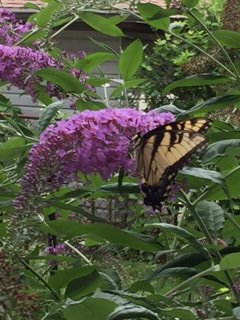
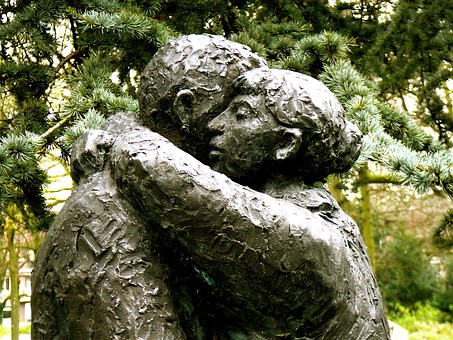
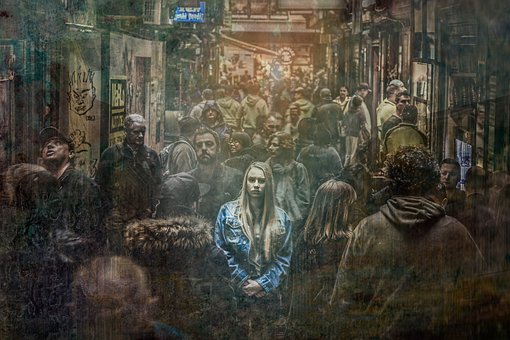
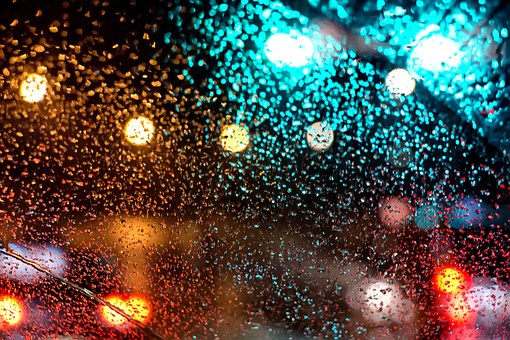
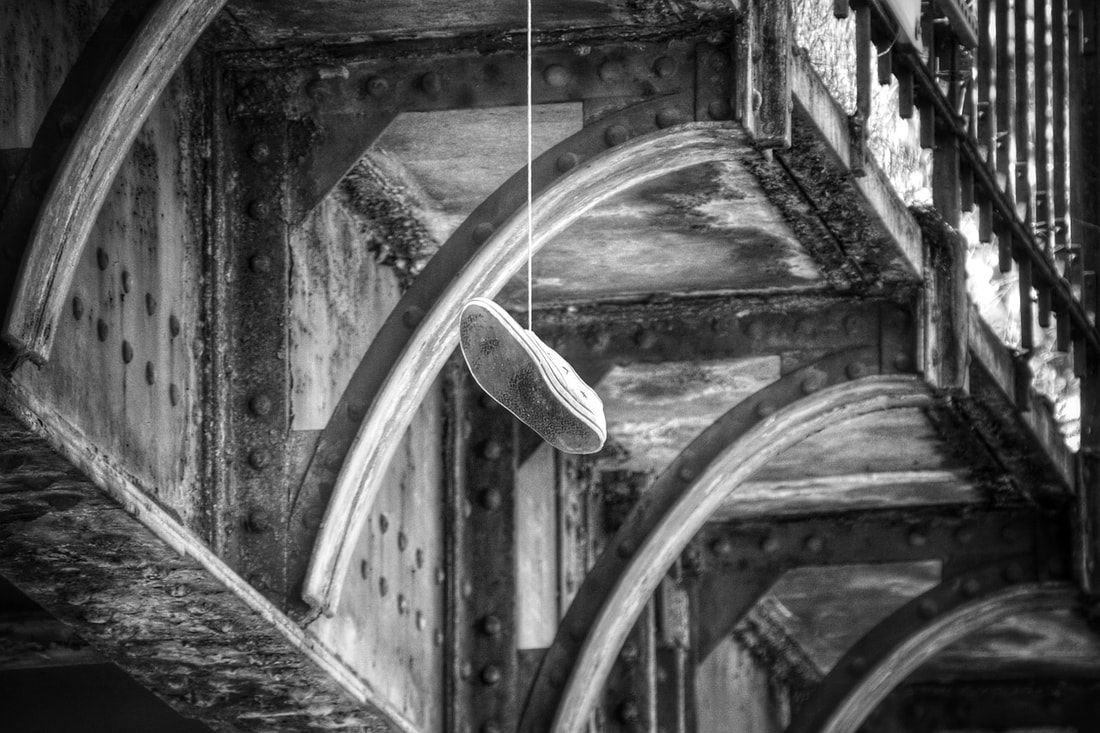
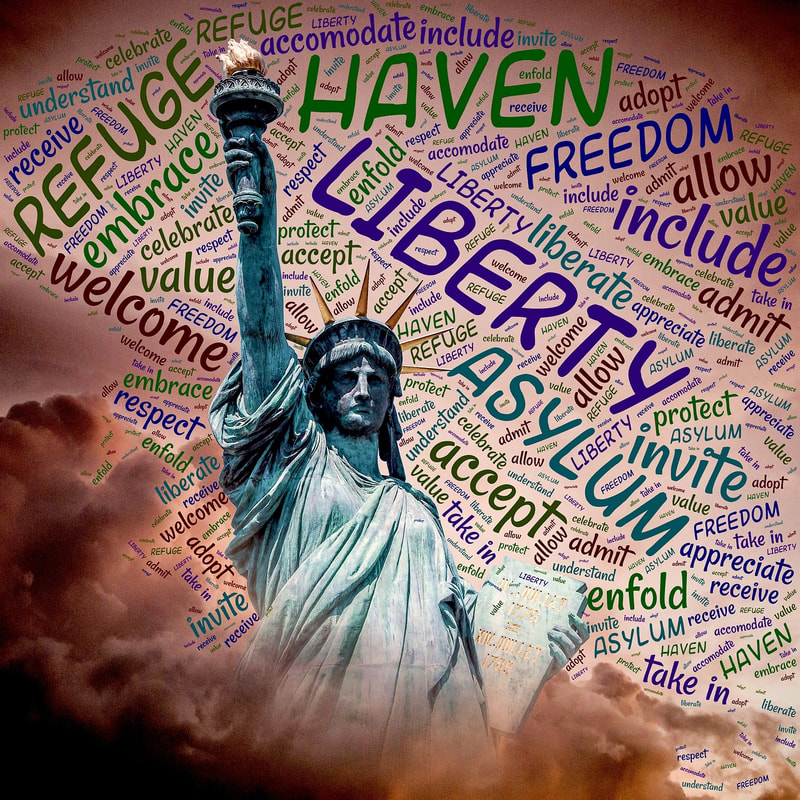
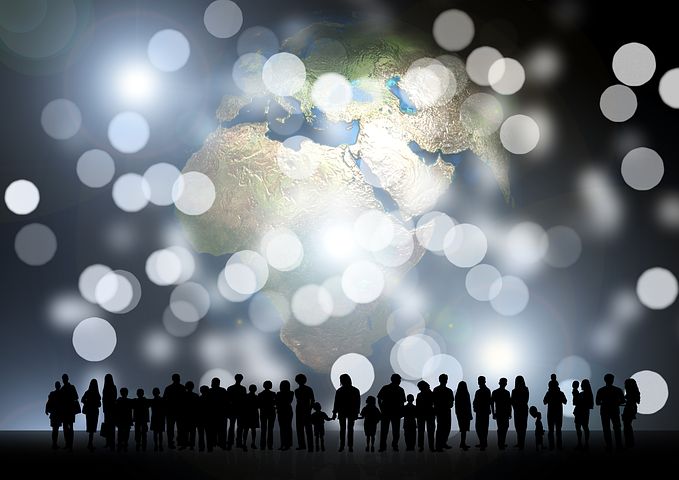
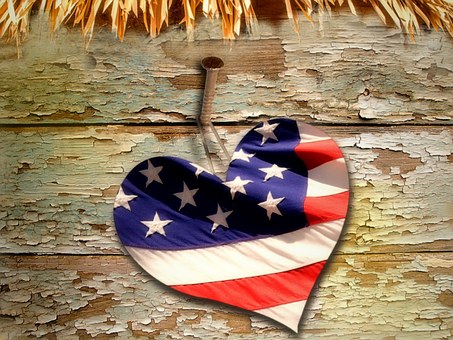
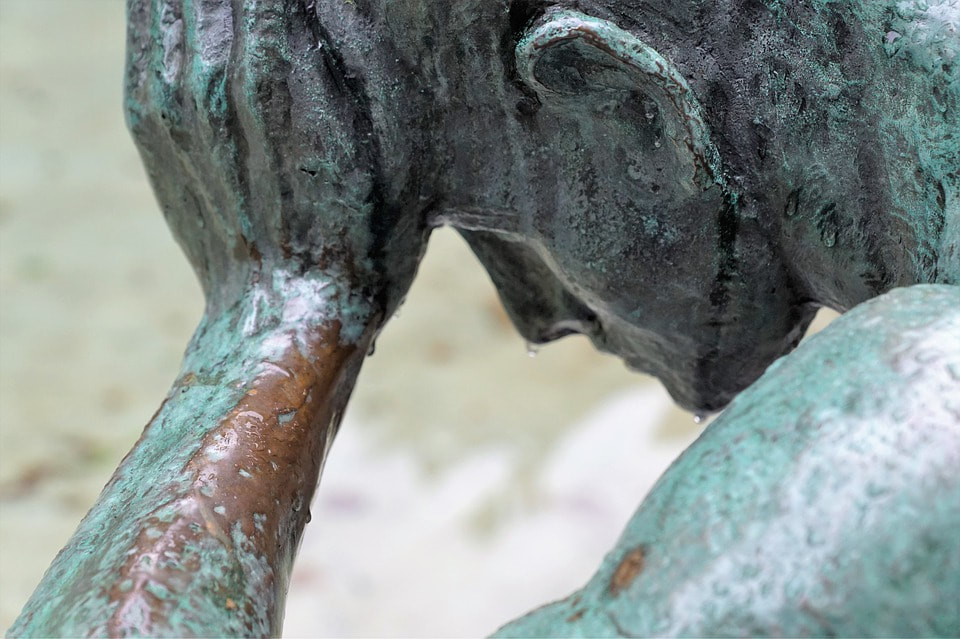
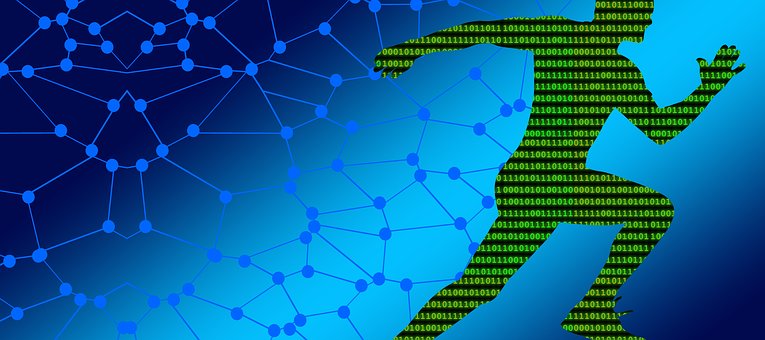
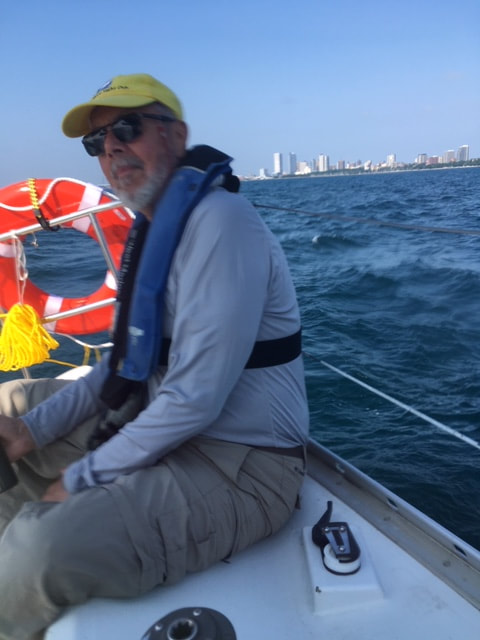
 RSS Feed
RSS Feed
